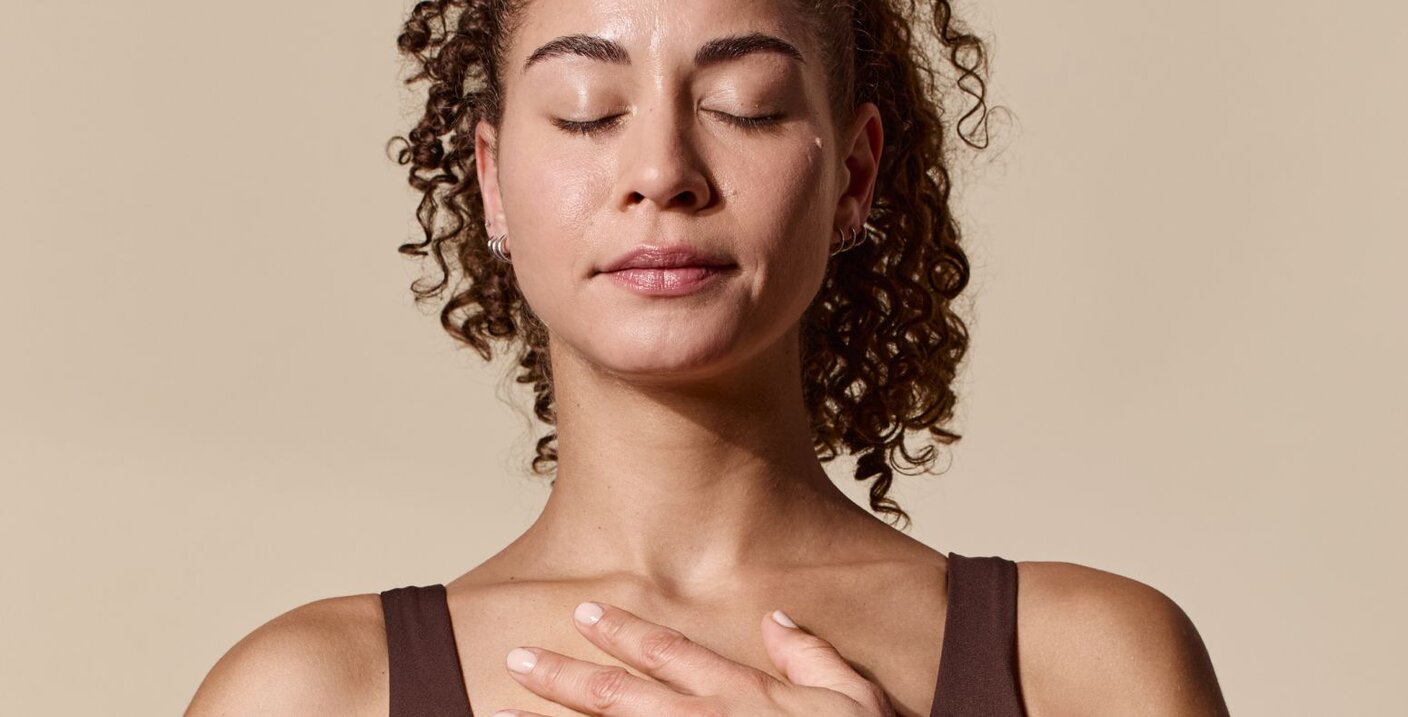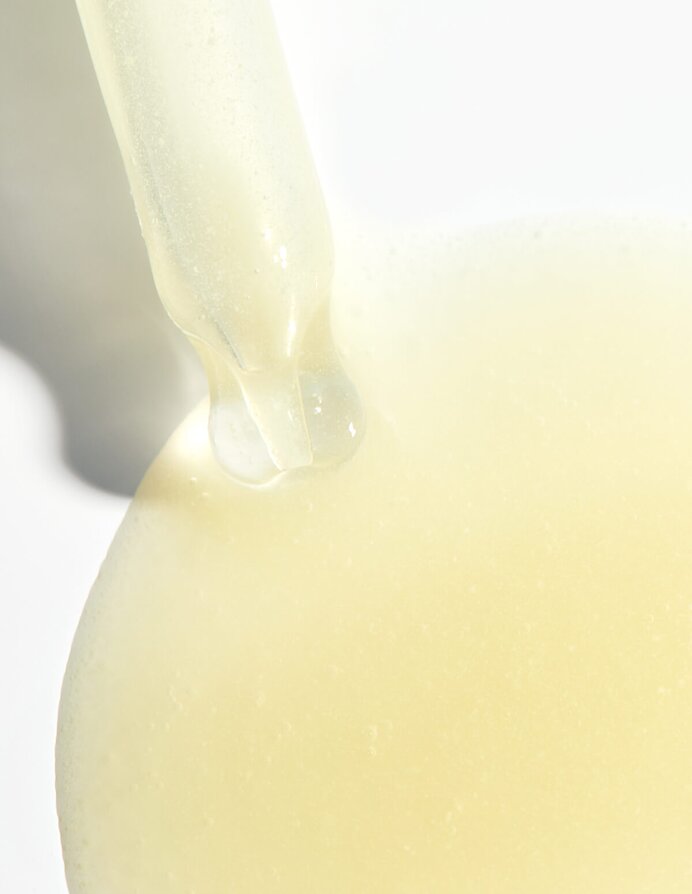
WELLBEING
The Impact of Stress on Your Skin
Stress doesn't just take a toll on your mind—it shows up on your skin too. Discover how stress impacts your complexion and get expert tips from a board-certified dermatologist.
With looming deadlines, breaking news alerts and a host of to-dos clamoring for our attention, stress is a part of modern life. While we can’t remove stress from our lives entirely, it’s important to manage our stress levels for the health of our bodies and minds—not to mention, our skin.
“As most people know, stress can take an enormous toll on the brain, affecting everything from cognitive function to memory and decision making,” says Dr Roberta Del Campo, Skin Laundry’s Chief Medical Officer. “The brain and the skin are in constant communication with each other. When we experience chronic stress in the brain, our body produces stress hormones, which can affect the skin in noticeable ways ranging from inflammation to irritation, itchiness and even infection.”
Read on to learn more about the connection between stress and the skin and get holistic lifestyle tips you can use to keep your mind—and your complexion—as clear as possible.
When we experience chronic stress, it can affect the skin in noticeable ways ranging from inflammation to irritation, itchiness and even infection.
External vs. Internal Skin Stressors
There are two primary types of stress that affect the skin. When discussing skin health, "external stressors" refer to environmental factors like pollution, UV radiation, harsh weather and chemicals that directly affect the skin from outside the body. On the other hand, "internal stressors" relate to factors within the body like stress hormones (cortisol), poor diet, lack of sleep, hormonal fluctuations and genetics. These internal stressors can manifest on the skin through visible changes, even though they originate internally
External Skin Stressors
As an external organ, the skin is constantly exposed to the outside world and environmental aggressors ranging from UV light to temperature changes and chemical irritants. External stressors can directly damage the skin barrier, causing dryness, irritation, redness and premature aging.
• UV Light: UV light from the sun and other sources (such as tanning beds or some fluorescent lighting) can cause oxidative stress in the skin. Oxidative stress can lead to premature signs of aging by damaging cellular components of the skin—including DNA, proteins and lipids—and triggering the formation of free radicals, which can impair cellular function.
• Pollution: Air pollution from cigarette smoke, car exhaust or industrial emissions can also damage the skin by triggering oxidative stress through the formation of free radicals. These free radicals can compromise the skin barrier and cause inflammation, wrinkles and the exacerbation of existing conditions such as eczema.
• Extreme Temperatures: Hot or cold temperatures can also impair the skin by disrupting its moisture levels. Cold weather signifies low humidity levels in the air, which can cause dryness in the skin. Hot weather can cause excessive sweating, which can not only dehydrate the skin but lead to irritation and inflammation.
Read more about cold-weather skincare here.
Internal Skin Stressors
Internal stressors such as stressful situations, hormonal imbalances, poor nutrition and lack of sleep can also have a visible impact on the skin. These stressors trigger the release of stress hormones like cortisol, which can lead to increased oil production, inflammation, acne breakouts and impaired skin repair mechanisms.
• Hormonal Changes: Fluctuations in hormones, which can occur during events such as puberty, menstruation or menopause, can lead to an increase in oil production that ultimately clogs the pores.
• Psychological Stress: Mental stress leads to the release of cortisol, which can trigger increased oil production that causes breakouts. An increase in cortisol levels can also cause inflammation, which contributes to premature signs of aging.
• Diet: When a diet is lacking in certain nutrients, such as vitamins A, C and E, the skin’s ability to repair and regenerate itself can be compromised. A diet that’s high in sugar and processed foods can contribute to inflammation.
• Hydration: Drinking enough water throughout the day will help the skin stay hydrated, which will in turn improve its elasticity, tone and reduce inflammation and puffiness.
When we're stressed, our bodies release cortisol, a hormone that can disrupt the skin's natural functions.
How Stress Impacts Your Skin
Stress isn’t just a mental burden—it can also show up in your skin. “When we're stressed, our bodies release cortisol, a hormone that can disrupt the skin's natural functions,” explains board-certified dermatologist Dr. Del Campo. This imbalance can weaken the skin barrier, leading to a variety of skin issues over time.
Here are some of the key ways stress affects your skin:
• Dehydration: Stress weakens the skin barrier, contributing to increased trans-epidermal water loss and dehydration.
• Signs of Aging: Elevated cortisol levels break down collagen and elastin, leading to sagging skin and the development of fine lines and wrinkles.
• Facial Expressions: Repeated stress-induced expressions like frowning or furrowing brows can lead to the formation of “frown lines” or “worry lines.”
• Skin Irritation: Stress can leave your skin feeling dry, red, and itchy.
• Rashes: Stress may trigger hives, causing red, raised bumps on the skin.
• Worsening Conditions: Stress can exacerbate existing skin issues like eczema, psoriasis, and acne.

How to Minimize the Effects of Stress on the Skin
One of the most effective ways to minimize the effects of stress on the skin is to stay consistent with a skincare routine, starting with a daily application of topical products.
“In addition to a regular cleansing and moisturizing routine, you can bolster your skin’s stress response by introducing antioxidants to your regime,” says Del Campo. “Antioxidants such as Vitamin C in the morning and Vitamin A in the evening can neutralize free radicals, which the body produces when it’s stressed. Using a broad-spectrum, mineral-based SPF of 30 or above is also crucial to protect the skin from the effects of oxidative stress, which is linked to physiological stress through the body’s stress response system.”
Holistic Lifestyle Tips for Managing Stress
Taking a holistic approach to stress management can benefit one’s overall health and mind, as well as the skin.
• Meditation: There is some clinical evidence to suggest that people who commit to a regular meditation practice may have lower levels of catecholamine, which belongs to a group of hormones that triggers the body’s “fight or flight” response. Meditation and other relaxation techniques have also been shown to help psoriasis.
• Yoga and Breathwork: These well-being practices have physical and mental benefits and support the skin by enhancing circulation and detoxification. Read more about how yoga and breathwork support healthy skin.
• Diet: Sticking to a well-balanced diet also has a positive impact on overall physical health and the health of the skin.
• Exercise: Exercise not only reduces stress by triggering the release of endorphins but also helps increase blood flow and remove toxins. Read more about the benefits of exercise.
Doctor's Note
Create a calming evening skincare routine to help de-stress and unwind. Taking a few minutes every evening will not only help hydrate and strenghten your skin but also gives you a peaceful moment to reset your mind.
Additional Reading
Your Shopping Bag
Your shopping bag is empty







